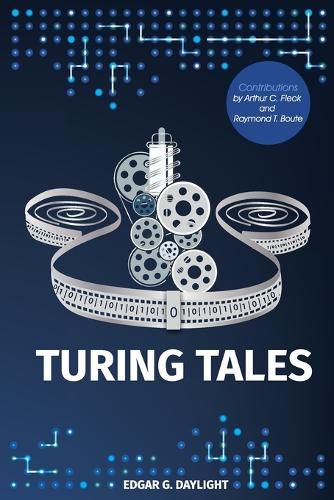Readings Newsletter
Become a Readings Member to make your shopping experience even easier.
Sign in or sign up for free!
You’re not far away from qualifying for FREE standard shipping within Australia
You’ve qualified for FREE standard shipping within Australia
The cart is loading…






This title is printed to order. This book may have been self-published. If so, we cannot guarantee the quality of the content. In the main most books will have gone through the editing process however some may not. We therefore suggest that you be aware of this before ordering this book. If in doubt check either the author or publisher’s details as we are unable to accept any returns unless they are faulty. Please contact us if you have any questions.
Edgar Daylight’s rather provocative theme in this book is that many high-profile computer scientists do not consistently distinguish between their favorite mathematical concepts and the representations thereof in the real world. This leads to mistakes. Daylight introduces seemingly small but useful distinctions. As a result, technical corrections are put forth in connection with formal verification, computer viruses, and program transformation systems.
Even mathematics isn’t free from conceptual flaws. Raymond Boute scrutinizes several unsound treatments of the function concept and connects his findings with computer science proper.
Daylight also rectifies the romantic idea that Turing invented the modern computer. Contrary to public opinion today, most computer pioneers were not trying to build a practical realization of a universal Turing machine. An exception in this regard is the Dutch computer builder Willem van der Poel, whose story is told here in English for the first time.
Arhur C. Fleck rounds out the historiographical weight of this book with his valuable reflections on the history of programming languages and Turing-Award winners.
$9.00 standard shipping within Australia
FREE standard shipping within Australia for orders over $100.00
Express & International shipping calculated at checkout
This title is printed to order. This book may have been self-published. If so, we cannot guarantee the quality of the content. In the main most books will have gone through the editing process however some may not. We therefore suggest that you be aware of this before ordering this book. If in doubt check either the author or publisher’s details as we are unable to accept any returns unless they are faulty. Please contact us if you have any questions.
Edgar Daylight’s rather provocative theme in this book is that many high-profile computer scientists do not consistently distinguish between their favorite mathematical concepts and the representations thereof in the real world. This leads to mistakes. Daylight introduces seemingly small but useful distinctions. As a result, technical corrections are put forth in connection with formal verification, computer viruses, and program transformation systems.
Even mathematics isn’t free from conceptual flaws. Raymond Boute scrutinizes several unsound treatments of the function concept and connects his findings with computer science proper.
Daylight also rectifies the romantic idea that Turing invented the modern computer. Contrary to public opinion today, most computer pioneers were not trying to build a practical realization of a universal Turing machine. An exception in this regard is the Dutch computer builder Willem van der Poel, whose story is told here in English for the first time.
Arhur C. Fleck rounds out the historiographical weight of this book with his valuable reflections on the history of programming languages and Turing-Award winners.